Knowledge Center
Filter by Keywords
Product
Small molecules - Neutraceuticals - Antibodies - Antibiotics - Cosmetics - Enzymes - Oligonucleotides - Peptides - ProteinsBlog
What’s new in Ypso-Ionic®?
Ypso-Ionic is a reference software for computing the purification of biomolecules, oligonucleotides and peptides by chromatography. The charge of such molecules depends on pH, which is a key aspect to consider for running simulations. Ypso-Ionic...
Blog
We’re thrilled to announce the release of Ionic 25.2.49!
This update brings a range of improvements to our chromatography simulation software Ypso-Ionic® , but this post highlights one feature requested from the process development community: Fraction Combination Made Simple In purification projects,...
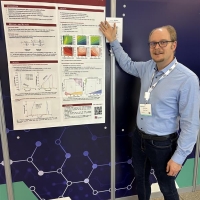
Publications
Simulation-Aided Process Development
Application to peptide purification by RP Chromatography
Reverse-phase chromatography (RPC) is a key technique for peptide purification, but establishing robust processes remains experimentally intensive and time-consuming. Mechanistic modeling provides an efficient route to accelerate process development...

Publications
Kinetic Modeling of Solid-Phase Oligonucleotide Synthesis: Mechanistic Insights and Reaction Dynamics
Publication in OPRD (Organic Process Research & Development)
Solid-phase oligonucleotide synthesis is a cornerstone of modern biotechnology, enabling the production of custom DNA and RNA sequences for therapeutic, diagnostic, and research applications. Despite its widespread use, the kinetics of this process...
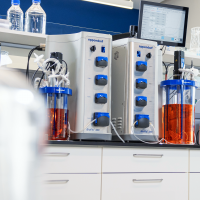
Publications
Purification of a Viral Protein by Ion-Exchange Chromatography: Methodology for Mechanistic Modeling and Comparison with a Statistical Approach
Publication in BioProcess International
We developed a mechanistic model to simulate purification of a viral-protein complex by cation-exchange chromatography on the “wrong side” of the molecule’s isoelectric point (in a pH range where the protein is mostly negatively charged). ...
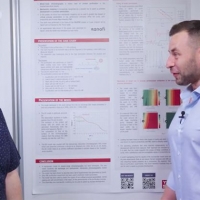
Blog
Interview with BioProcess Insider – Modeling to Accelerate Downstream Development
Following Ypso-Facto’s Best Poster Award at BioProcess International Europe , our Co-CEO Edouard Nicoud spoke with BioProcess Insider editor Joshua Abbott about how mechanistic modeling can accelerate downstream process development — with...

Publications
mAb production kinetics in CHO batch culture: exploring extracellular and intracellular dynamics
Publication in "Frontiers in Bioengineering and Biotechnology"
We are pleased to announce that Alejandro Avilan Garzon, PhD , doctoral researcher conducting his PhD work at Ypso-Facto, has recently published part of his research in Frontiers in Bioengineering and Biotechnology , in collaboration with our colleague ...

Blog
Interview : « L'expertise humaine est un précieux outil pour évaluer la fiabilité d'un modèle » (French)
Dans un article récemment publié par L’Usine Nouvelle (édition Industrie Pharma), Édouard Nicoud, co-CEO d’Ypso-Facto, présente notre approche méthodologique pour fiabiliser les bioprocédés : une combinaison rigoureuse entre modélisation...
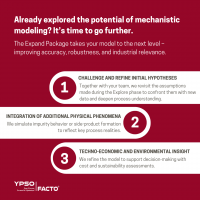
Blog
From exploration to expansion: refining process understanding through simulation
After identifying opportunities in the Explore phase , it’s time to go further. At Ypso-Facto, our Expand Package is designed to refine and enrich the mechanistic models developed during the first phase of collaboration. We build on the initial...
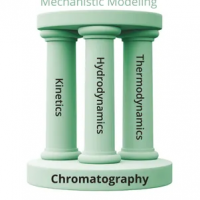
Publications
Oligonucleotide Purification by Ion-Exchange Chromatography: Predicting the Impact of Salt Type and Buffer pH with Mechanistic Modeling
Published in BioProcess International in collaboration with Roche
Check out Ypso-Facto's new publication on oligonuclotide purification by Ion Exchange Chromatography in collaboration with Roche . ABSTRACT Ion-exchange chromatography (IEC) is a common method for oligonucleotide purification...

Blog
mAb production kinetics in CHO batch culture: exploring extracellular and intracellular dynamics
Publication in "Frontiers in Bioengineering and Biotechnology"
We are pleased to announce that Alejandro Avilan Garzon, PhD , doctoral researcher conducting his PhD work at Ypso-Facto, has recently published part of his research in Frontiers in Bioengineering and Biotechnology , in collaboration with our colleague...

Blog
Ever wanted to leverage mechanistic modeling but worried it’s too time-consuming?
The Explore Package makes it simple and efficient!
At Ypso-Facto, we understand that diving into mechanistic modeling can feel overwhelming—especially when time and expertise are in short supply. That’s why we created the Explore Package, the perfect solution to kick-start your journey with minimal...
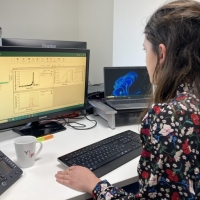
Publications
Ypso-Facto dans le magazine La Semaine : "L'entreprise biopharmaceutique Ypso-Facto, une réussite de Lorraine" (French)
Dans son dernier numéro, le magazine La Semaine consacre un article à Ypso-Facto. C’est l’occasion pour nous de partager un aperçu de notre travail et de notre engagement dans les secteurs de la chimie et des bioprocédés. L’article aborde...
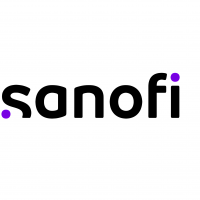
Blog
Sanofi's experience with mechanistic modeling and Ypso-Ionic
Mechanistic models offer a robust alternative to traditional statistical methods because they require fewer experimental data and provide superior predictive capabilities, even outside of the conditions studied experimentally. We have implemented...
![[French] Podcast : Optimisation des procédés pharmaceutiques](https://www.ypsofacto.com/upload/news/s_4051--French-Podcast-Optimisat.png)
Blog
[French] Podcast : Optimisation des procédés pharmaceutiques
Par Good Manufacturing Podcast - Le podcast qui extrait les bonnes idées de l'industrie pharmaceutique
Notre podcast enregistré lors du Congrès Performance Environnementale de POLEPHARMA est maintenant disponible ! Dans cet épisode, Edouard Nicoud , Customer Success Manager à Ypso-Facto et Paul-Adrien Mathon échangent à propos de nos...
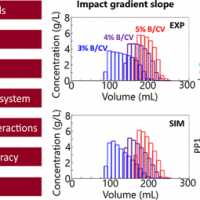
Publications
Oligonucleotide Purification by Ion Exchange Chromatography : Step-by-Step Guide to Process Understanding, Modeling, and Simulation
Published in OPRD in collaboration with GSK, AstraZeneca and Johnson & Johnson
Check out Ypso-Facto's new publication on oligonuclotide purification by Ion Exchange Chromatography in collaboration with GSK , Astrazeneca and Johnson & Johnson . ABSTRACT Oligonucleotides have emerged as a promising class of...

Publications
Bioprocess Simulation: Why the Industry Needs To Embrace Engineering Rather Than Empirical Approaches?
By Roger-Marc Nicoud in Bioprocess International
In 1903, the Wright brothers built the first functioning airplane, and botanist Mikhail Tsvet became the first scientist to use chromatography to separate components of a solution (carotene pigments, in his case). Now, 120 years later, new airplanes...
Blog
Predicting the impact of buffer type and pH : Application to protein purification by IEX
Challenge The challenge was inspired by the experimental data reported in Pabst et al. J. Chrom. A (2008) 1181, 83-94. A poor separation between two proteins, Serum Albumin (SA) and Serum Transferrin (ST), was observed (Fig. 1). The separation...

Blog
Mechanistic modeling can help switch from batch to continuous: Myth or Fact?
Fact Once model parameters have been determined with a single column system , they can be used to perform simulations of multicolumn chromatography (MCC) with any number of columns. Calculating key performance indicators (KPIs) for both single...
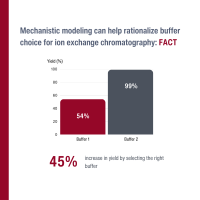
Case studies & Application Notes
Application Note: Prediction of the impact of buffer type with mechanistic simulation
Application to protein purification by IEX chromatography
The proper selection of buffers is essential in the design of ion exchange processes. It was reported that at a given pH and ionic strength, a change in the type of buffer (e.g., acetate to phosphate) may have a dramatic impact on protein separation...

Blog
Mechanistic modeling can help secure scale-up: Myth or Fact?
Fact Unlike statistical models which are based on correlations and are only valid for their calibration data set, mechanistic model parameters have an actual physical meaning and can be applied to different process setups and process scales. ...

Blog
Reduced experimental work by 4 compared to DoE for an oligonucleotide ion exchange process
Customer Success Story from GSK
" GSK Engaged Ypso-Facto’s expertise, their Ypso-Ionic software and GPX approach to develop a mechanistic model of a complex ion-exchange purification process. Compared with the classical statistical DoE approach, only 25% of the experimental...

Blog
Mechanistic modeling is complex: Myth or Fact?
Myth The underlying equations that represent physical phenomena are necessarily complex, but using mechanistic models to gain process understanding doesn’t have to be. You don’t need to be a computerprogrammer or simulation expert with years...

Blog
Mechanistic modeling requires many experiments: Myth or Fact?
Myth A customer told us recently that mechanistic modeling required only 25% of the experimental work required for a classical statistical DoE approach and they also achieved much more, including deep process understanding. The number of experiments...

Blog
Mechanistic modeling completely replaces experiments: Myth or Fact?
Myth…for now A mechanistic model relies on first principles based on physico-chemical phenomena and requires estimating a number of model parameters specific to the case under investigation. The evaluation of model parameters is typically done...

Blog
3 Benefits of Mechanistic Modeling For Chromatographic Process Development
Mechanistic modeling is based on the laws of physics and biochemical principles to predict system behavior. It is the most advanced way to speed up chromatography process development, scale-up, and troubleshooting. Watch the Youtube video to discover...
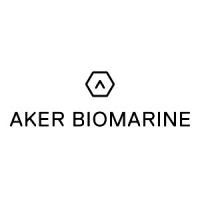
Blog
Doubled productivity of a multi-column ion exchange chromatographic process with increased purity
Customer Success Story from Aker BioMarine
About the optimization of a multi-column Ion Exchange system : « In combination with AKBM “user-knowledge” and intuition, Ypso-Facto used experimental laboratory- and production-data and made simulation-models with the software...

Blog
Three Benefits of Mechanistic Modeling For Chromatographic Process Development
Optimizing chromatographic processes can be achieved by employing mechanistic modeling, with the following benefits: Increase Process Understanding Get to the core of chromatography with mechanistic modeling. The combination of well targeted experiments...
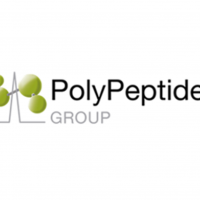
Blog
Reduced solvent consumption by 57% in peptide solid phase synthesis
Customer Success Story from Polypeptide Group
"During our cooperation with Ypso -Facto, by associating our respective expertises , predictive simulation and experiments, we managed reducing by 57 % the solvent use for resin washing during SPPS ." Olivier LUDEMANN-...

Blog
Comparison of single and multi-column processes with mechanistic simulation
Application to oligonucleotide purification by ion exchange
Multicolumn Chromatography is a strong possible alternative to single-column chromatography for improving process performances. Mechanistic simulations can be used to investigate several process options and quantify the impact on key performance...

Case studies & Application Notes
Application Note: Comparison of single column and MCSGP processes with mechanistic simulation
Application to oligonucleotides purification by ion exchange chromatography
The Multicolumn Countercurrent Solvent Gradient Purification (MCSGP) process is a strong possible alternative to single-column chromatography for improving chromatographic process performances. Mechanistic simulations can provide an independent opinion...
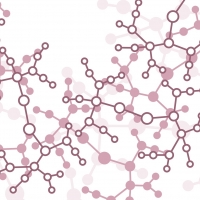
Blog
Modeling: Mechanistic or Statistical ? Part 2 : Making a choice
Interested by knowing the differences between statistical and mechanistic approach? Click here to access part 1 of the article "Modeling : Mechanistic vs Statistical ? Part 1 : Modeling expectations" All modeling approaches...

Publications
Purification of Protein by HIC
Mechanistic Modeling for Improving Process Optimization
In collaboration with GSK, this article outlines how a simple chromatographic model can predict the impact of pH and ionic strength on HIC chromatograms. Hydrophobic interaction chromatography (HIC) is a separation technique widely used for...

Blog
Modeling: Mechanistic or Statistical ? Part 1 : Modeling expectations
Digital tools are used for well-known applications in our everyday life: energy production, navigation, drugs development, weather prediction, diseases detection. They are useful because they allow predicting: weather, illness, position and direction...

Blog
How to easily extract relevant information and KPIs from your experimental data ?
Maximize the value of your experimental data with Ypso-Ionic®
Your data is one of your most valuable resources. But without a tool to exploit them in a structured way, you miss information that allow you to improve efficiency, increase productivity or decrease the experimental work burden. This is why we...

Blog
Ensure reliable tech transfer thanks to comprehensive and structured data
Maximize the value of your experimental data with Ypso-Ionic®
Ypso-ionic® is a software solution for designing chromatographic processes . Compared to a classical ELN, Ypso-Ionic allows to describe, store and share your experimental data in a standardized, contextualized and rational manner across all...
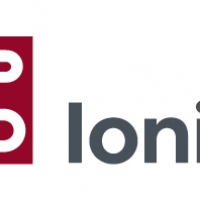
Blog
Maximize the value of your experimental data... what does it mean ?
Ypso-Ionic is a collaborative software for designing chromatographic process, but not only! It is an innovative solution for data management and reliable tech transfer. Hence, you can : easily compare different batches to check consistency...
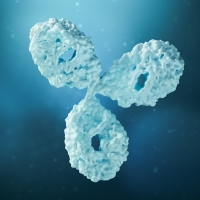
Case studies & Application Notes
Application Note: Design of a multicolumn process for mAb capture
Mechanistic simulation to assess the impact of the number of columns on key performance indicators
There is an increasing interest in using multicolumn processes for the capture of monoclonal antibobies (mAbs) by affinity chromatography . However, selecting and designing the most suitable process is not straightforward. There are indeed a wide...
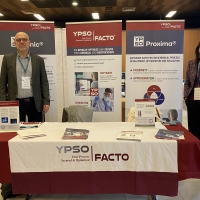
Blog
Feedback from Bioproduction conference
End of September, we attended the 7 th edition of conference Bioproduction organized by MabDesign , in Lyon . The focus this year was on the development and bioproduction of therapeutics drugs such as mAbs . There were several presentations both...
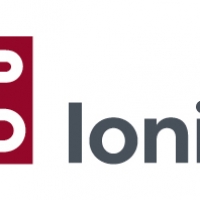
Blog
Discover Ypso-Ionic® in 3 minutes!
Open-up a new world of opportunities for your chromatographic processes
Working in downstream process development, do you: interact with people of different skills and expectations? need to share information in a standardized and non ambiguous manner? want to increase teamwork efficiency? If yes...

Blog
Boosting a process with digital tools: Purification of oligonucleotides by ion exchange
With GSK and Astrazeneca
Purification of oligonucleotides by ion exchange (IEX) is complex and many operating parameters need to be selected. There is a high interest in developing digital tools allowing to speed up process development, securing scale-up and decreasing waste...

Blog
Interviewing experts on DSP intensification
Process intensification allows biomanufacturers to produce more product, often more quickly, using fewer raw materials and smaller equipment in less space. While there has been much focus on upstream process intensification, this approach can have significant...

Blog
Roundtable : What do you consider the biggest challenge that the pharma/biopharma industry currently faces?
By Lucrèce Nicoud, Ph.D., Head of Innovation at Ypso-Facto in Q2 2022 issue of Pharma's Almanac
In this roundtable from the new Q2 2022 issue of Pharma's Almanac , a distinguished panel of industry experts discusses the biggest challenge currently faced by the pharma/biopharma industry. The panel represents a diverse range of companies, including...
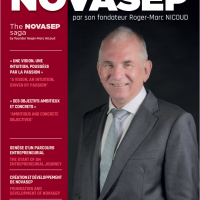
Blog
The history of Novasep through the eyes of its founder Roger-Marc Nicoud
In this exclusive document, Roger-Marc Nicoud returns to the saga of Novasep, a group he founded in 1996 but in which he no longer plays any part. In April 2022, following its purchase by investment company Bridgepoint (financial shareholder...
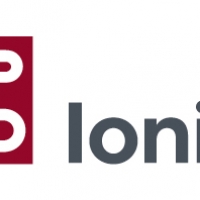
Blog
Ypso-Ionic® - what our users say!
"This tool makes it easy to calculate the distribution of eluates… when preparing a buffer, it makes it possible to calculate the pH in advance and check for errors."
Ypso-Ionic® is a software solution for designing chromatographic processes. It maximizes the value of experimental data and makes predictive simulation a game changer. But the best people to talk about it... are our customers! Check out the...

Blog
Article : Digital tools support rational catalytic process development and evaluation
Panel Discussion on catalysis in Chemistry Today
By Kilian Kobl - Project Manager at Ypso-Facto Progress in catalysis has enabled major breakthroughs in domains as various as agriculture, health and daily life, to only cite a few. Although new approaches of studying and developing catalytic processes...

Case studies & Application Notes
Application Note: Prediction of an oligonucleotide purification by IEX thanks to simulation and mechanistic modeling
Impact of key operating parameters in a complex process
Designing a chromatographic process requires selecting numerous operating parameters (column dimensions, number of steps, step duration, buffer type, eluent pH, flowrates, gradient slope…) There is a high interest in using predictive simulation...
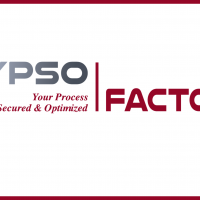
Blog
6 facts you didn’t know about Ypso-Facto
YPSO means Your Process Secured and Optimized … And it’s a fact!
How great would it be to have a way to check if your chemical and bioprocess is optimized, safe, green and efficient? Well, that’s what we do for you at Ypso-Facto ! Ypso-Facto means Y our P rocess S ecured and O ptimized …And...
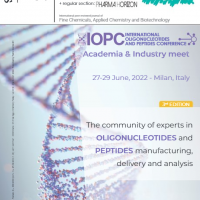
Blog
Article : Digital tools unleash the full potential of oligonucleotide production
Panel Discussion on oligonucleotides in Chemistry Today
By Kilian Kobl - Project Manager at Ypso-Facto Current oligo manufacturing processes are still somewhat larger scale versions of the initial processes conceived in the lab. Oftentimes, during development of an API, the choice of speed had to be...
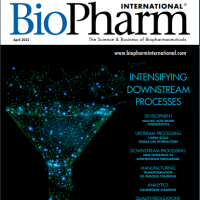
Blog
Article : Intensifying Downstream Processes
Cynthia A. Challener - BioPharm International, April 2022 Issue
The need to increase efficiency and productivity is driving adoption. The biopharmaceutical industry is faced with the challenge of increasing efficiency and productivity to get needed medicines to patients more quickly and cost-effectively. Greater...

Blog
Interview : Sans un effort sur les procédés, notre industrie sera condamnée (French)
Interview de Roger-Marc Nicoud par L'Usine Nouvelle - InfoChimie
Courant 2022, Ypso-Facto va lancer une première version de sa suite logicielle Ypso-Proxima. Conçue selon une approche métier, elle a pour objectif d'aider les acteurs de la chimie fine et de la biotech à développer des procédés plus optimisés...
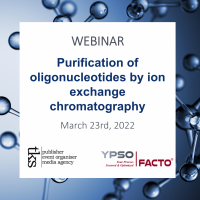
Webinars
Getting your process up to speed with digital tools; purification of oligonucleotides by ion exchange chromatography
Presented by Kilian Kobl and illustrated with real-world examples from AstraZeneca and GSK
Oligonucleotides have emerged as a promising class of pharmaceuticals, leading to a drastically increasing demand. Like peptides, they are typically produced by solid phase synthesis and then purified by reverse-phase chromatography and increasingly...

Blog
Interview : “Un besoin urgent de révolutionner la bioproduction”
Congrès France Bioproduction 2022
Président d’Ypso-Facto, Roger-Marc Nicoud travaille depuis sept ans, avec son équipe de 25 personnes à Nancy, à la mise au point de nouveaux outils de développement et de pilotage des procédés industriels. Une expérience qu’il a notamment...
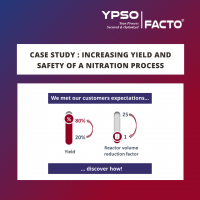
Case studies & Application Notes
Increasing yield and safety of a nitration process
Predictive simulations coupling mass & heat transfer
Challenge 40-year old nitration process for the production of an Active Pharmaceutical Ingredient Highly complex process with low selectivity Need to enhance competitiveness and improve safety Methods...
Blog
How to prepare your buffers in two clicks ?
Ypso-Ionic, the software solution for designing chromatographic processes
Did you know that ... In addition to maximizes the value of experimental data and makes predictive simulation a game changer , Ypso-Ionic software can help you prepare your buffers in two clicks ! Select...
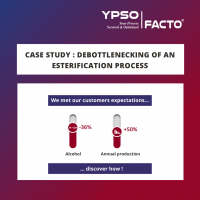
Case studies & Application Notes
Debottlenecking of an esterification process
Development of a mechanistic model accounting for phase equilibria (G/L/S)
Challenge Established process (> 40 years) for the production of an ester Debottlenecking Improving economics (OpEx) while minimizing investment Methods Identification of the reaction pathway thanks...
Blog
Maximize the value of your data and embrace the power of mechanistic simulation
Tired of working with Excel spreadsheets? With multiple and complex software tools limiting your efficiency? What if you could have a single solution to capture your data and run predictive simulation? We have good news for you: Ypso-Ionic ,...
Blog
Does pH matter in your separation process?
Do you work with mineral ions? With organic buffers? With proteins, peptides, or oligonucleotides whose retention behaviour is dramatically impacted by their charge? Ypso-Ionic® is a software solution for ...
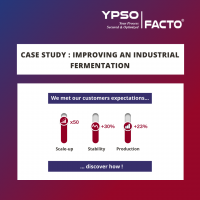
Case studies & Application Notes
Improving an industrial fermentation
Challenge Scale-up of a industrial fermentation process Need to improve productivity and process stability Methods Establishment of mass balances, calculations of yields and Oxygen Uptake Rates ...

Webinars
Building a mechanistic model, guidelines and benefits with a focus on enzymatic reactions.
Presented by Yohann Le Guennec and Airy Tilland
Mechanistic models have provided great outcomes for chemical processes development and optimization in the last decades. However, their underlying equations sometimes appear as cryptic for non-initiated people, which limits their acceptance and use...
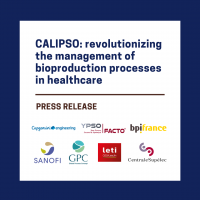
Publications
CALIPSO: revolutionizing the management of bioproduction processes in healthcare
Paris (France) – September 16th, 2021 – Sanofi, Capgemini, Ypso-Facto, GPC Bio, CEA, CentralSupelec announce the launch of the project CALIPSO !
A structuring R&D project for French medical research, financed and coordinated by a consortium of high-profile industrial and public actors. An essential mobilisation to accelerate access to new treatments at an acceptable cost, to ensure...
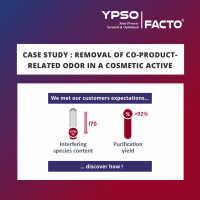
Case studies & Application Notes
Removal of an odorous molecule in a cosmetic product
Process simulations using mechanistic modeling
Challenge Cosmetic active ingredient manufacturing process More stringent specifications in terms of the residual concentration of an odorous co-product Methods Identification of relevant technologies for the removal...
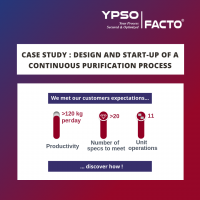
Case studies & Application Notes
Case Study: Design and start-up of a continuous purification process
Challenge Existing pilot batch process for the purification of omega-3 fatty acids from natural oil (11 unit operations) Shift to an industrial continuous production Methods Analysis of the existing batch...
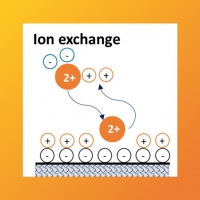
Webinars
Modeling and simulation of ion-exchange in bioprocesses - illustrations from industrial biotech to biopharma
Presented by Yohann Le Guennec
Ion-exchange chromatography is based on the differences in terms of electrostatic interactions of molecules regarding an adsorbent. Nowadays, industrial processes based on ion-exchange chromatography can be found in many different sectors from the food...

Webinars
Application of ion-exchange to the purification of multivalent isomers: modeling and simulation
Presented by Lucrèce Nicoud
Ion exchange has been extensively used for many purposes in the medical and pharmaceutical industries over the years. This webinar will present an industrial case study, namely the purification of an amino-glycoside antibiotic produced by fermentation...
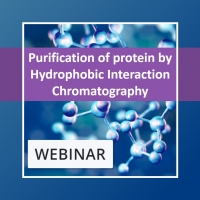
Webinars
Purification of protein by Hydrophobic Interaction Chromatography (HIC): mechanistic modeling for improved understanding and process optimization
Presented by Yohann Le Guennec
Hydrophobic Interaction Chromatography (HIC) is a chromatographic separation technique that is today successfully used for the purification of proteins. However, to achieve highly efficient separations, key operating parameters – like pH and ionic...
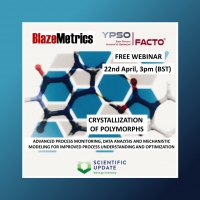
Webinars
Crystallization of polymorphs: advanced process monitoring, data analysis and mechanistic modeling for improved process understanding and optimization
Presented by Lucrèce Nicoud from Ypso-Facto and Richard Becker and Joe Oliva from Blaze Metrics
Many active pharmaceutical ingredients are known to crystallize in different polymorphic forms; a phenomenon that greatly impacts solubility, bioavailability, color, shape, filterability and tabletability. It is key to produce the targeted polymorph...
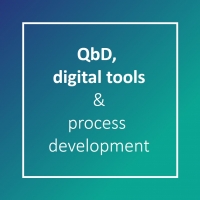
Webinars
Associating digital tools and QbD to speed-up process development: a few simple and hopefully rational considerations
By Roger-Marc Nicoud, Ypso-Fcato and Thierry Bastogne, CYBERnano
Regulatory bodies, including the FDA and EMA, are strongly promoting the implementation of QbD: a science and risk-based approach to drug development and manufacturing to increase the success rate, process robustness and eventually product quality. ...
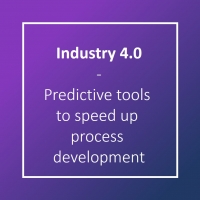
Webinars
Industry 4.0 : Using predictive digital tools to speed-up process development.
A few simple and hopefully rational considerations.
In terms of digitalization, the biotech industries are quite significantly behind others, like the automotive or aeronautical industries, possibly because the digital tools available are not very well suited to their needs. Roger-Marc explains how...
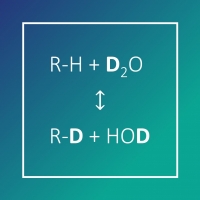
Webinars
Deuterium in the 21st century, use in medicinal chemistry and synthetic methods.
Presented by Thomas Jennequin
Ninety years after its discovery, Deuterium is in the spotlights. Since the beginning of the 21 st century, a number of biotechnology companies have successfully explored its potential in drug candidates and generated intellectual property. This approach...
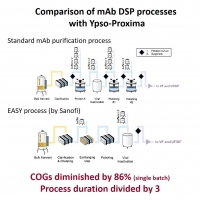
Publications
Process comparison in Ypso-Proxima: EASY by Sanofi vs. classical mAb purification process
Technical and economic evaluation to reduce Cost of Goods
During the last years, alternatives to Protein A purification in mAb downstream processing have raised substantial interest. In parallel, the pharmaceutical industry has a growing need for reliable tools supporting process development and rational decision-making...
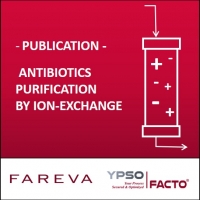
Publications
Antibiotics purification by ion-exchange
The power of mechanistic modeling and predictive simulation
Sometimes you have to change a raw material for various reasons (lack of availability, economic pressure, find alternative sustainable raw material), but this little change can impact significantly your process. In the below article, you’ll...
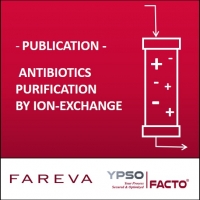
Blog
NEW ARTICLE – Fareva and Ypso-Facto investigate the purification of an antibiotic by ion-exchange
Using Mechanistic Modeling for Understanding Antibiotics Purification with Ion Exchange Chromatography
This article is based on a real industrial purification process by Fareva and highlights the power of mechanistic modeling for process development: Our client needed to change a raw material to secure his supply chain. From a process point of...
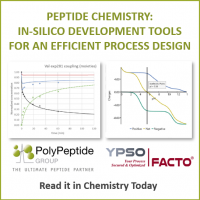
Publications
Oligonucleotides & Peptides
Peptide chemistry: in-silico development tools for an efficient process design
ABSTRACT This article highlights a new way of thinking for the optimization of Peptide Synthesis. The concept is based on numerical tools to assist the peptide chemists for the choice of the manufacturing route. Process development can be shortened...
Blog
Indépendance sanitaire : La tribune de Roger-Marc Nicoud (French)
“ Retrouver l’indépendance pour la production d’API : une chance pour les CDMO européennes ? "
La crise actuelle rappelle à l’Europe (et sans doute à l’Amérique du Nord) les limites de la délocalisation de la production. C’est le cas pour de nombreux produits, incluant bon nombre d’ingrédients pharmaceutiques actifs (API) et de médicaments...
Blog
Feature article – Regaining independence in API production: A chance for European CDMOs
Roger-Marc Nicoud, CEO of Ypso-Facto, looks at the challenges and opportunities for CDMOs in the current crisis
The current crisis has highlighted the dependence of European and, indeed, North American countries on delocalised production. This is the case for many goods, including APIs and drugs in general. The opportunity is now there for European CDMOs to...
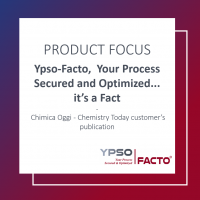
Blog
Ypso-Facto, Your Process Secured and Optimized... it’s a Fact
Product Focus - Chimica Oggi - Chemistry Today customer’s publication
ABOUT YPSO-FACTO Ypso-Facto is a company helping industrial firms to develop, optimize and secure their chemical and bio-processes. We commit to keeping our interests aligned with the ones of our customers. For this reason, we remain deliberately...
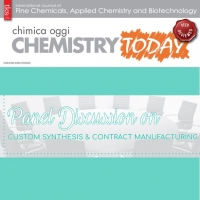
Blog
Digitalization for CDMOs: thinking outside the silos!
Panel discussion on custom synthesis and contract manufacturing, Chemistry Today, vol 37(4)
Marc-Olivier Simon and Moïse Bitton discuss the needs of CDMOs in terms of digitalization of their activities and the tools available on the market (ELN, LIMS, LES, SDMS, KM, QMS, MES etc.). While (Big) Pharmas have embraced digitalization, CDMOs...
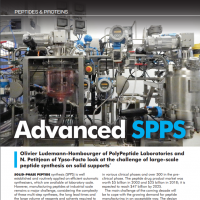
Publications
Advanced SPPS
Discussion on the challenge of large-scale peptide synthesis on solid supports
"Solid-Phase Peptide Synthesis (SPPS) is well established and routinely applied on efficient automatic synthesisers, which are available at laboratory scale. However, manufacturing peptides at industrial scale remains a major challenge, considering...
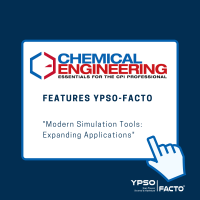
Blog
Modern Simulation Tools: Expanding Applications
A Chemical Engineering article featuring Ypso-Facto
New user-friendly solutions help chemical processors tackle tasks beyond design and optimization Initially, steady-state simulation was used in the chemical process industries (CPI) to design a plant or a process. Advances in the technology, along...
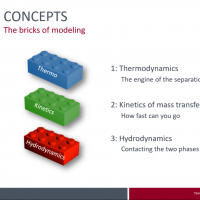
Publications
Understanding ion-exchange chromatography to design efficient processes with a predictive approach
IEX webinar
Ion-exchange chromatography is certainly the most ancient type of chromatography. While M. Tswett is often credited with the paternity of chromatography, the first traces of the use of ion-exchange chromatography date back to Ancient Egypt where it was...
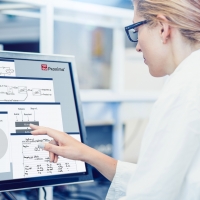
Blog
A new era in life sciences software
Ypso-Facto's view on the digitalization of process design
Life sciences industries still use outdated tools and methodologies to develop, optimise and operate their (bio)molecule production processes. Ypso-Facto proposes to take a fresh look at the needs and expectations of this sector. Read the full article...
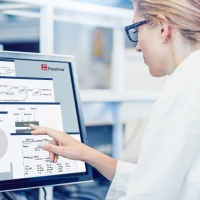
Publications
A new era in life sciences software
The fine chemicals and biochemicals industries will evolve towards more digitally designed processes associating experiments, user know-how and mechanistic modeling
"Life sciences industries still use outdated tools and methodologies to develop, optimise and operate their (bio)molecule production processes. Ypso-Facto proposes to take a fresh look at the needs and expectations of this sector. Digitalisation...
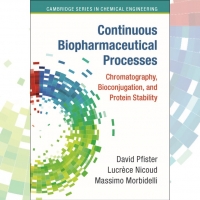
Publications
Continuous Biopharmaceutical Processes
Chromatography, Bioconjugation, and Protein Stability
ABSTRACT: This innovative reference provides a coherent and critical view on the potential benefits of a transition from batch to continuous processes in the biopharmaceutical industry, with the main focus on chromatography. It also covers the key...

Blog
Panel discussion on flow chemistry
The insights of Marc-Olivier Simon in Chemistry Today
"By adopting chemical engineering good practices earlier in process development, a major step forward would be taken" Read the full panel discussion in Chemistry Today , vol. 36 (3), 2018, pp 26-34 ...
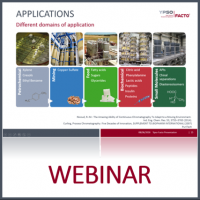
Publications
Designing Robust Chromatographic Processes with a Proven Predictive Approach
Webinar by David Pfister
Preparative chromatography is a versatile purification technique used in various industrial sectors including petrochemistry, sugar production, pharmaceutical and fine chemistry, to name only a few. While this technology is often considered complex,...

Blog
Streamlining process development with simulation software tools
Interview of Roger-Marc Nicoud in Chemistry Today
Nowadays process development is generally experiment-based with a traditional trial-and-error approach, direct scale-up and simple use of statistical tools. We are convinced that the fine chemical and biochemical industries will evolve towards more digitally...
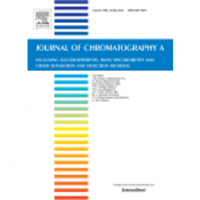
Publications
Designing affinity chromatographic processes for the capture of antibodies
Part I: A simplified approach
ABSTRACT Protein A affinity chromatography is a standard technique for the purification of therapeutic antibodies. Recently, multi-column chromatographic processes have emerged to turn classical capture processes into more efficient and continuous...
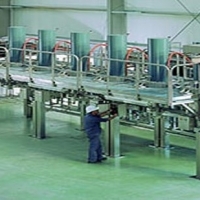
Publications
Comparing multi-column chromatographic processes for purifying monosaccharides
Part I: A simplifed approach
ABSTRACT This work proposes a methodology for comparing different multi-column chromatographic processes (SMB, ISMB, SSMB) for purifying monosaccharides. The first step of the methodology consists in determining the flow rates associated with the...

Blog
Appréhender la conception du procédé dans sa globalité pour développer de meilleures solutions (French)
Interview of Roger-Marc Nicoud - Infochimie Magazine
Créée en 2014, Ypso-Facto aide les industriels de la chimie et des biotechnologies à développer, sécuriser et optimiser leurs procédés. Elle s’appuie sur une équipe disposant d’une forte expérience à la fois industrielle et universitaire...
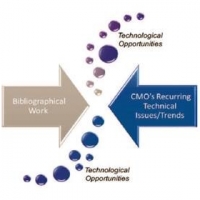
Publications
Innovative organic chemistry: a differentiating driver for CMOs
A methodological approach to develop technical competitive advantages
ABSTRACT: The fine chemicals segment is a field of continuous innovation with regards to new molecular structures in which Contract Manufacturing Organizations (CMOs) play a major role, in particular for the commercial-scale production of organic...
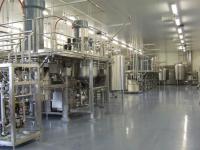
Publications
From batch to continuous processes: a good answer, but what is the question? Part II*
The purification unit operations, specific situations, the complete process perspective
ABSTRACT: The switch from batch to continuous process is a major topical question in the fine chemical, pharmaceutical and biopharmaceutical industries. In spite of a genuine interest, as shown by the profusion of recent literature and symposia...
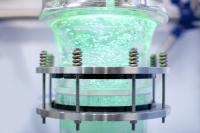
Publications
From batch to continuous processes: a good answer, but what is the question? Part I*
General considerations and the reaction unit perspective
ABSTRACT: The switch from batch to continuous process is a major topical question in the fine chemical, pharmaceutical and biopharmaceutical industries. In spite of a genuine interest, as shown by the profusion of recent literature and symposia...
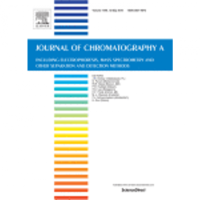
Publications
A continuum theory for multicomponent chromatography modeling
ABSTRACT: A continuum theory is proposed for modeling multicomponent chromatographic systems under linear conditions. The model is based on the description of complex mixtures, possibly involving tens or hundreds of solutes, by a continuum. The...
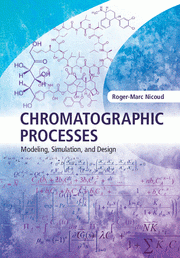
Publications
Chromatographic Processes
Modeling, Simulation, and Design
ABSTRACT: Addressing all aspects of the design, modeling and simulation of chromatographic processes, this result-oriented primer provides a practical guide to all the necessary approaches, methodologies and tools. Beginning with key definitions...

Blog
Entrepreneurship, Lessons Learned, and Bioindustry Perspectives
An Interview with Roger-Marc Nicoud
Roger-Marc Nicoud received his PhD from the University of Lorraine in process simulation for the nuclear industry. He joined Separex in 1987, first as a technical director and then as a managing director until 1995. Between 1993 and 1995, he also worked...

Publications
The amazing ability of continuous chromatography to adapt to a moving environment
ABSTRACT: While normally considered an expensive technology, chromatography has been used for very large-scale applications for ∼50 years. Main successes reported in the petrochemical or sugar industries are obtained with systems having the characteristics...
